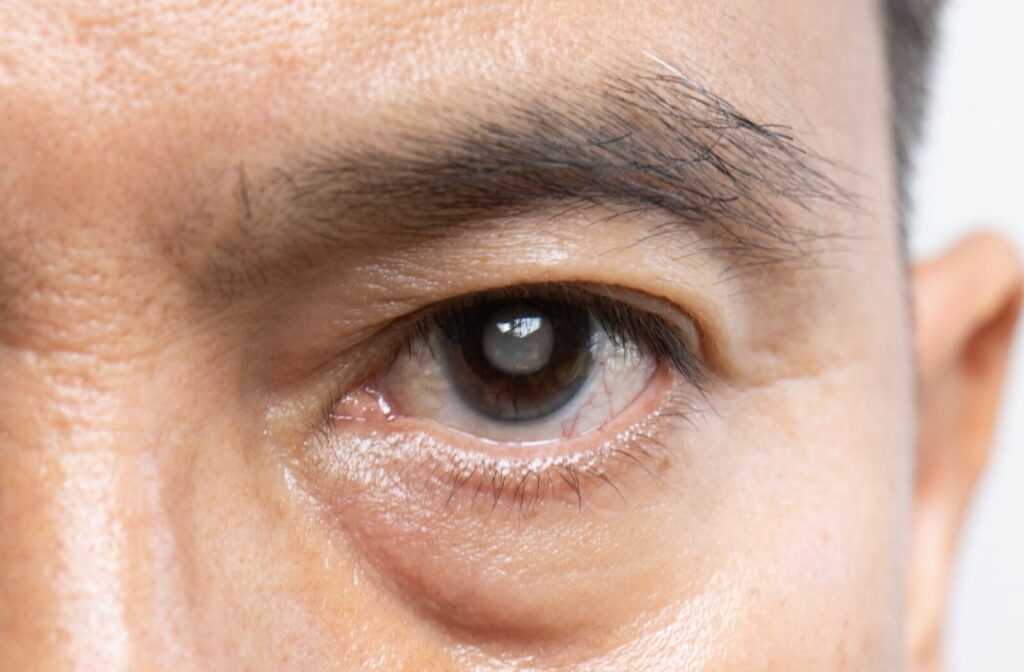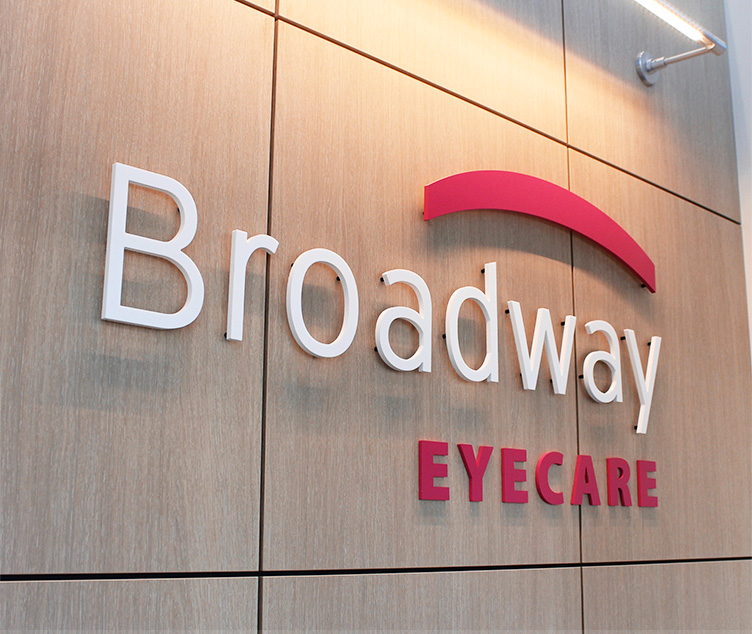Cataract surgery has transformed the way many people see the world, offering a bright new outlook by replacing cloudy lenses with clear artificial ones. After going through the process, you likely hope you’re done with cataracts for good. That’s why it can be concerning if you hear rumours that cataracts could return.
Cataracts cannot return after surgery because the affected lens has been completely removed, but you can develop a condition that mimics similar symptoms. Thankfully, your optometrist can identify these secondary cataracts during a comprehensive eye exam and offer treatment so you can continue to enjoy your newfound clarity.
What Are Cataracts?
Cataracts occur when the eye’s natural lens becomes cloudy. This natural part of aging comes as the proteins in your lens gradually break down, leading to symptoms such as:
- Blurry or cloudy vision
- Difficulty seeing at night
- Sensitivity to light and glare
- Double vision
- Seeing halos around lights
- Fading or yellowing of colours
These symptoms vary depending on whether the cataract develops at the centre, edge, or back of the lens, but they can all significantly impair your day-to-day activities, from reading a book to driving at night.
While most cataracts are age-related, some factors can cause them to develop early. Some cataract causes not related to aging include:
- Diabetes
- Smoking
- UV damage
- Eye injuries
- Hypertension
- Chronic kidney disease
- Autoimmune disease
If you have any of these factors, you could be considered high risk for cataracts and should prioritize getting a yearly check-up from your optometrist. After all, we can’t treat what we don’t know is there!
What Is Cataract Surgery?
Cataract surgery is one of the most common surgeries performed in Canada and is designed to restore clear vision by removing the clouded lens and replacing it with an artificial intraocular lens (IOL). This outpatient procedure is quick, typically lasting less than an hour, and boasts a high success rate, allowing patients to experience improved vision surprisingly fast.
First, your eye doctor, whether an optometrist or ophthalmologist, will check your eyes to see if you’re the right fit for the procedure. Early cataract symptoms might not impact your vision much, so they might suggest waiting to see how things go and recommend glasses or contact lenses in the meantime. Plus, you’ll need to be in good eye health before the big day.
If you and your eye doctor decide that removing the lenses is the best step for your vision, your eye doctor will measure your eyes for the new lens and prepare you for surgery. You might need to fast before the procedure, and you should plan to take a day off work.
When the procedure begins, your surgeon will numb your eyes with drops before making a small incision and swapping out your lens for the IOL. Most folks can head home the same day, but you’ll need someone to drive you back. Afterwards, you just need to follow the specific instructions for eye care and attend any follow-up appointments to promote proper healing.
With cataract surgery, many patients regain their ability to see the world vividly and enjoy activities they once found challenging.
What If My Vision Gets Hazy Again?
Cataracts themselves cannot return after surgery since the IOL can’t develop them. However, some patients may experience a condition sometimes called a “secondary cataract” or posterior capsule opacification (PCO). PCO occurs when the back of the lens capsule (which holds the IOL in place) becomes cloudy, causing symptoms similar to cataracts.
Secondary cataracts are relatively common and can develop months or even years after the initial surgery. The good news is that this condition is easily treatable with a quick procedure called YAG laser capsulotomy.
YAG laser capsulotomy involves using a laser to create a small opening in the cloudy capsule, allowing light to pass through and restore clear vision. The process can be performed in your eye doctor’s office.
What to Do After Cataract Surgery?
Taking care of yourself after cataract surgery is key to a smooth recovery. Stick to your doctor’s advice. This may include using eye drops to help prevent infection and ease inflammation. Don’t forget those follow-up appointments to monitor your healing progress.
You may need to protect your eyes with a shield and sunglasses to keep light sensitivity at bay. Take it easy—heavy lifting, bending, or any vigorous activities are a no-go for a few weeks. You’ll likely be back to reading or watching TV pretty soon, usually within a day. Just listen to your body and gradually ease back into your routine to let your eyes heal without strain.
Mild discomfort, itching, and light sensitivity are normal, but let your eye doctor know if you notice:
- Severe pain
- Very red eyes
- Vision loss
- Floaters
Keeping Your Vision on Track
If you’re considering cataract surgery, or you’ve already had it and are experiencing any changes in your vision, our Broadway Eyecare team is here to help. We’ve helped many patients achieve clearer vision and are ready to connect you with Saskatoon’s ophthalmology.
Book an appointment today and take the first step towards seeing the world through a clearer lens!









